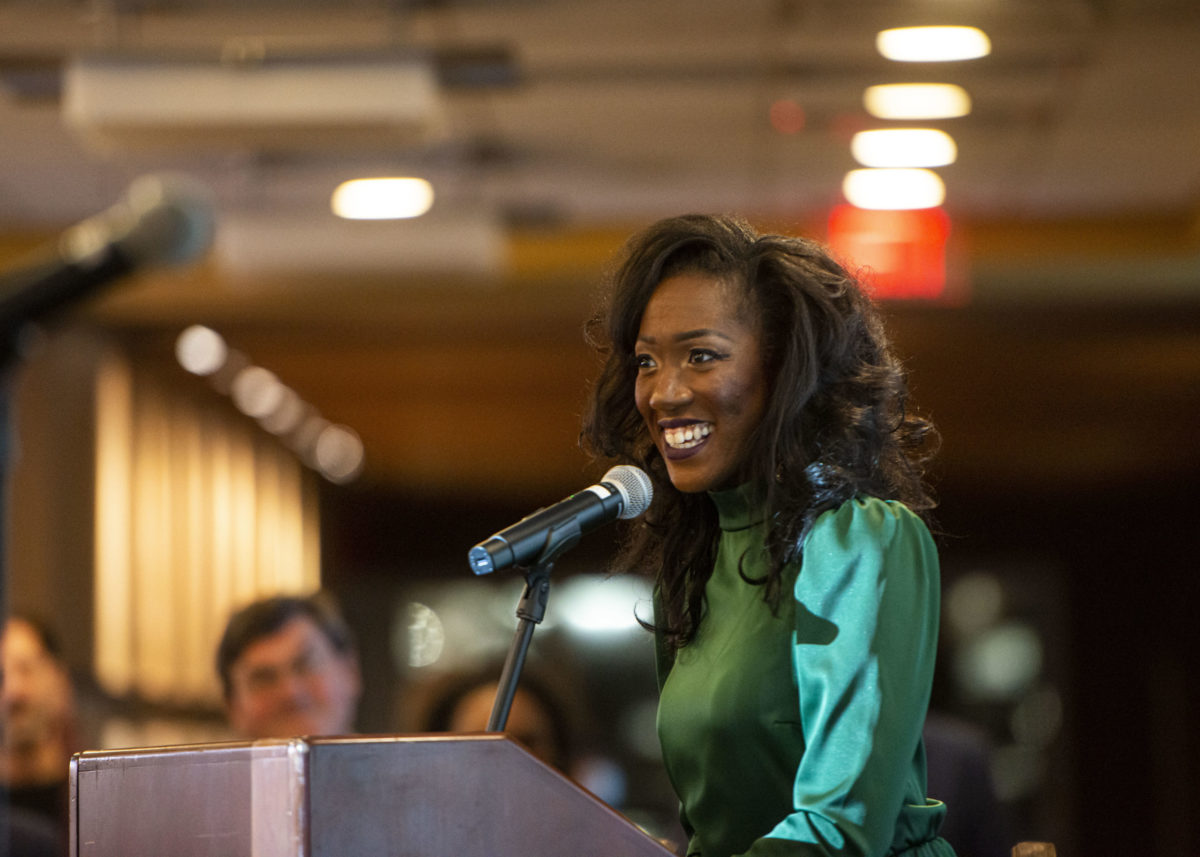In an effort to continue taking a push for broadband access that began locally to the national agenda, a group of Baltimore leaders and digital equity advocates are backing a new bill in Congress that would require the Federal Communications Commission (FCC) to investigate digital redlining.
The Anti-Digital Redlining Act of 2021, sponsored by U.S. Rep. Yvette Clarke (D-Brooklyn, NY), would prohibit digital redlining. It’s a term that draws a line between the Baltimore-pioneered discriminatory real estate practices that fueled segregation in the early 20th century and the digital divide that leaves 40% of Baltimoreans without internet access, and has been exacerbated by the pandemic.
“Part of what this moment and this racial reckoning across the country represents is a need for us to be honest about where we are and how we got here,” said Baltimore City 1st District City Councilman Zeke Cohen, who collaborated with Clarke on the bill, in an interview. “We cannot whitewash away the reasons why cities, towns farms, tribal lands across the country that are majority-minority have worse internet access than predominantly white areas.”
Today I am incredibly excited to join @RepYvetteClarke, in introducing the Anti-Digital Redlining Act.
This legislation will empower the FCC to investigate digital redlining. In Baltimore, 40% of households lacked home wireline internet access. pic.twitter.com/RyAygrjzd1
— Zeke Cohen (@Zeke_Cohen) August 9, 2021
The bill would also require the FCC to investigate whether internet service providers have discriminatory practices based on income, race, color religion, national origin and other factors within a geographic area. It also calls for a consumer-centric analysis of franchise agreements between local governments and telecommunications providers. Overall, this can be a path to more equitable access, Clarke said.
“Broadband is a necessity and in the 21st century it must be a right, not a luxury, not a privilege, full stop,” the legislator said in a news conference on Monday. The bill, she said, “will protect that right in underserved and underrepresented communities nationwide.”
Clarke worked with a group of 100 local elected officials from across the country that included Cohen, as well as Baltimore City Councilmembers Kristerfer Burnett of the 8th District and Ryan Dorsey of the 3rd District. Groups including the student organizers at Students Organizing a Multicultural and Open Society (SOMOS) and Baltimoreans for Educational Equity were also involved.
The group has been involved in securing resources, such as when the City Council approved funds for laptops and internet connectivity as part of a $3 million pandemic relief package in April 2020. That group of councilmembers also called for an investigation into proposed data caps by Comcast that were later delayed.
In Baltimore, they saw how access gaps came down on racial and economic lines. They recognized that this is a national problem, and started working with community leaders facing digital access issues, including in other cities, in rural areas and on tribal lands. They then sent a letter to the FCC in March calling for a commission to investigate digital redlining. Now, Clarke is bringing the issue to Congress.
“It’s evident that this is not just a Baltimore problem. It’s a national issue and it’s urgent,” said Kimberly Vasquez, a SOMOS leader and Baltimore City College alum who is now a freshman at Goucher College. “We need action from the federal level. We need the FCC to urgently partake in closing this gap of digital redlining across the country.”
It comes amid renewed policy energy around broadband access in the wake of a pandemic that took work, school and many facets of life online. Funds for broadband are part of the proposed infrastructure bill now making its way through Congress. And shortly after she was elevated, FCC chairwoman Jessica Rosenworcel called the expansion of internet connectivity is being called the regulatory agency’s “most urgent priority.”
“Internet access is infrastructure, so it’s important to see President Biden and Congressional leaders really pushing as the infrastructure bill gets developed to make sure internet access is a big part of that work,” Cohen said. “It’s also important, though, that Congress be clear and give the FCC as the regulatory body its mandate to go after digital redlining. We think that there is a real need for our elected representatives in Washington, DC to call out this practice and to enable the watchdog which is the FCC to really go after it.”
Before you go...
To keep our site paywall-free, we’re launching a campaign to raise $25,000 by the end of the year. We believe information about entrepreneurs and tech should be accessible to everyone and your support helps make that happen, because journalism costs money.
Can we count on you? Your contribution to the Technical.ly Journalism Fund is tax-deductible.
Join our growing Slack community
Join 5,000 tech professionals and entrepreneurs in our community Slack today!




